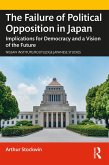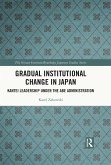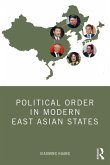Through its evaluation of the legacy of post-war opposition parties, the politics of electoral reform and the crucial importance of foreign policy (especially in relation to China), this volume argues that Japan has 'lost its way', and that for recovery it needs to move away from single-party dominance. Despite the failures of the Democratic Party (DPJ) government 2009-2012, the reasons for which are explored, the need to combat economic, social and political stagnation requires a more pluralist political environment, in which LDP monopoly of policy and personnel can be realistically challenged by vigorous opposition parties. Comparisons are made with other parliamentary democracies, in particular the United Kingdom, Australia and Sweden, to indicate that single-party dominance is an inadequate substitute for competition between genuine political alternatives.
As an analysis of opposition party politics in post-war Japan, this book will be a valuable resource for students and scholars of Political Science, International Relations, Asian Studies and Japanese Studies.
Dieser Download kann aus rechtlichen Gründen nur mit Rechnungsadresse in A, B, BG, CY, CZ, D, DK, EW, E, FIN, F, GR, HR, H, IRL, I, LT, L, LR, M, NL, PL, P, R, S, SLO, SK ausgeliefert werden.









